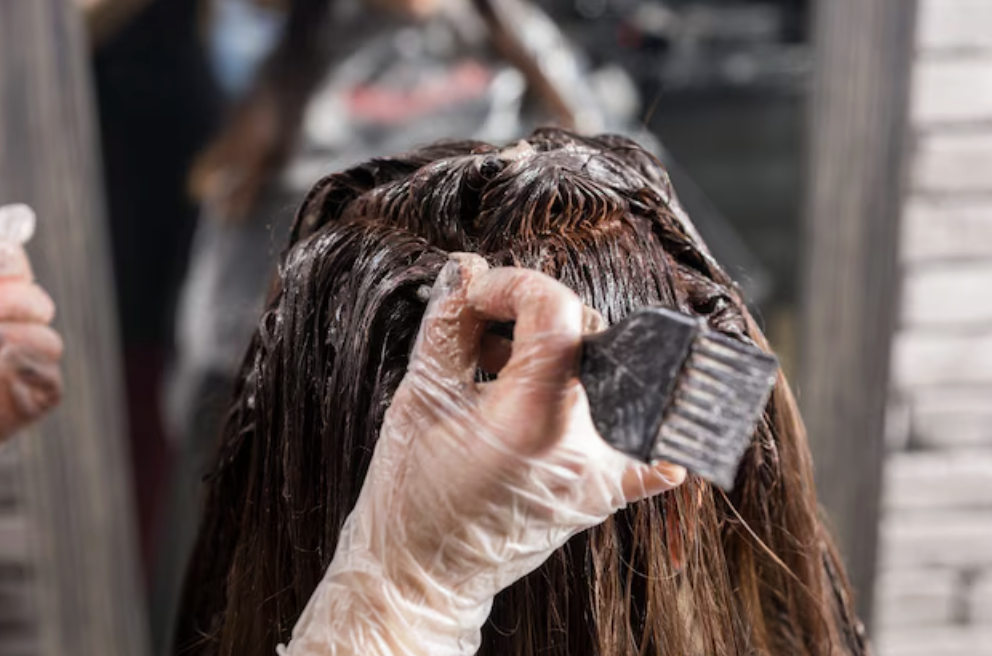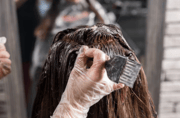
If you’ve ever sat in a salon chair breathing in that familiar chemical scent while your hair was transformed into something sleek and straight, you’re far from alone. For years, hair straighteners and relaxers have been beauty staples that promise smooth results in exchange for a little sting in the eyes or throat.
But those brief irritations may be warning signs of something more alarming. A major new study suggests that the chemicals behind those glossy strands could increase the risk of developing some of the most dangerous cancers known today.
The Hidden Dangers in Your Haircare Routine
A new study out of Emory University has sent shockwaves through the beauty and health communities. Researchers followed more than 46,000 women for over 13 years as part of the Sister Study—a long-term project tracking women with a family history of breast cancer. Their goal? To see if there’s a link between chemical hair straighteners or relaxers and cancer risk.
The results were sobering. Women who used these products had a 166% higher risk of developing pancreatic cancer compared to those who didn’t. Pancreatic cancer is notorious for being one of the deadliest forms, largely because it’s so hard to catch early. But that’s not all: users also faced a 71% higher risk of thyroid cancer and a 62% higher risk of non-Hodgkin’s lymphoma. For those who used straighteners or relaxers more than four times a year, the risks climbed even higher.
What’s Lurking in the Bottle?
The main villain here is formaldehyde—a chemical used as a preservative in many hair products, especially those promising long-lasting straightness. When these products are heated (think flat irons or blow dryers), formaldehyde can be released as a gas, a process called “off-gassing.” Inhaling these fumes, especially in small, poorly ventilated spaces like bathrooms, can irritate your eyes and lungs in the short term. Over time, repeated exposure has been linked to cancers of the nose, throat, and even leukemia.
The American Cancer Society has long warned about formaldehyde’s dangers, and animal studies have confirmed its cancer-causing potential. But it’s not just formaldehyde—many hair products contain a cocktail of chemicals, some of which may also play a role in increasing cancer risk. The Emory study’s authors are calling for more research to pinpoint exactly which ingredients are the most dangerous.
What you need to know about hair straightener risks
- Risk increases with frequency of use (more than 4 times per year is considered 'frequent')
- Multiple types of cancer are now linked to these products
- The chemicals of concern include formaldehyde, parabens, and metals
- Risk appears similar across racial groups, but impact may be greater for frequent users
- Uterine cancer remains relatively rare even with increased risk
Source: staytunednbc / TikTok
Who’s Most at Risk?
The study also revealed a stark racial divide in product use. About 66% of Black women in the study reported using hair straighteners or relaxers, compared to 25% of Hispanic/Latina women and just 1.3% of non-Hispanic White women. This means that the health risks associated with these products disproportionately affect women of color—a fact that’s raising important questions about health equity and consumer safety.
Also read: Scientists say one vitamin supplement could help reduce skin cancer risk
What’s Being Done About It?
The good news? Lawmakers and regulators are starting to take notice. The European Union and at least 10 US states have already banned or proposed bans on formaldehyde and similar chemicals in personal care products. In 2023, the FDA proposed a nationwide ban on formaldehyde in hair straighteners, though it hasn’t yet been enacted.
Regulatory timeline for hair product safety
Washington state recently passed the Toxic-Free Cosmetics Act, which will ban all formaldehyde-releasing chemicals in cosmetics starting January 1, 2027.
But until these bans are in full effect, many products containing formaldehyde and other risky chemicals are still on store shelves.
Also read: Is your go-to daily drink secretly causing hair loss? Experts reveal the shocking truth
What Can You Do to Protect Yourself?
- Read Labels Carefully: Look for products labeled “formaldehyde-free” or “no formaldehyde releasers.” Be aware that some ingredients, like methylene glycol or quaternium-15, can release formaldehyde over time.
- Limit Use: If you do use chemical straighteners or relaxers, try to limit how often you use them—less than four times a year appears to be safer, according to the study.
- Ventilate: Always use these products in a well-ventilated area. Open windows, turn on fans, and avoid inhaling fumes as much as possible.
- Consider Alternatives: Embrace your natural hair texture, or try heat-based straightening methods that don’t require chemical treatments. There are also plant-based and less harsh options on the market—though it’s still wise to check the ingredient list.
- Advocate for Change: Support organizations and legislation pushing for safer beauty standards.
Read next:
- Common body type under scrutiny after study reveals higher cancer risk
- The vegetables that may help lower your colon cancer risk, according to new research
- Not your typical suspect: this breakfast item may increase cancer risk
Have you used hair straighteners or relaxers in the past? Are you concerned about the ingredients in your favorite products? Have you found safer alternatives you love?






